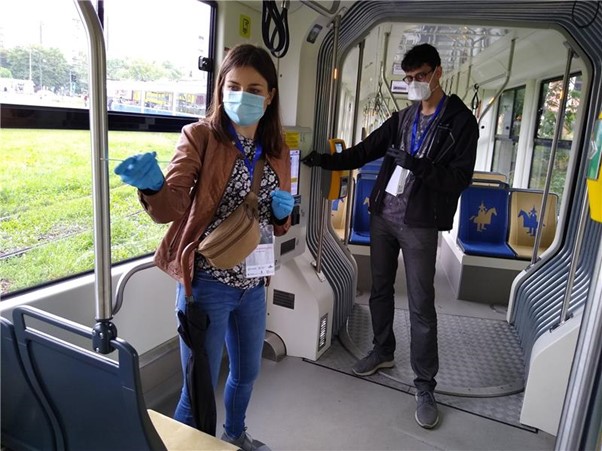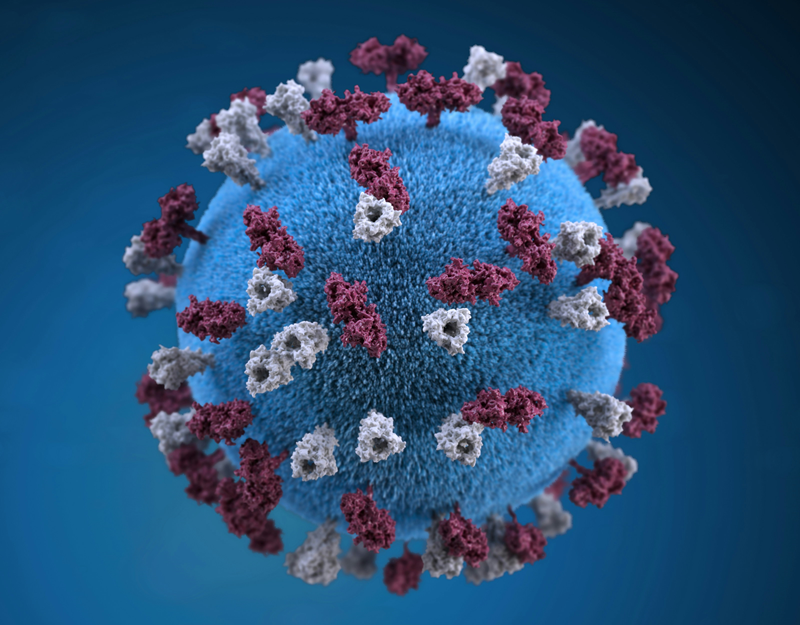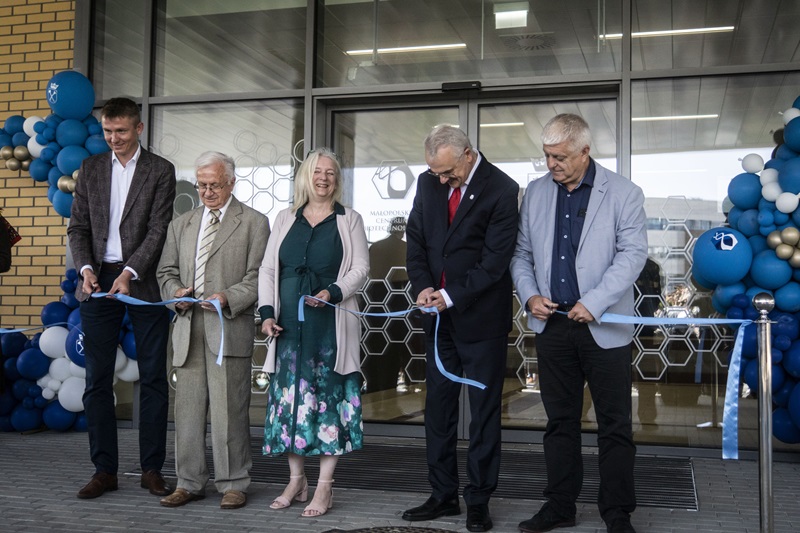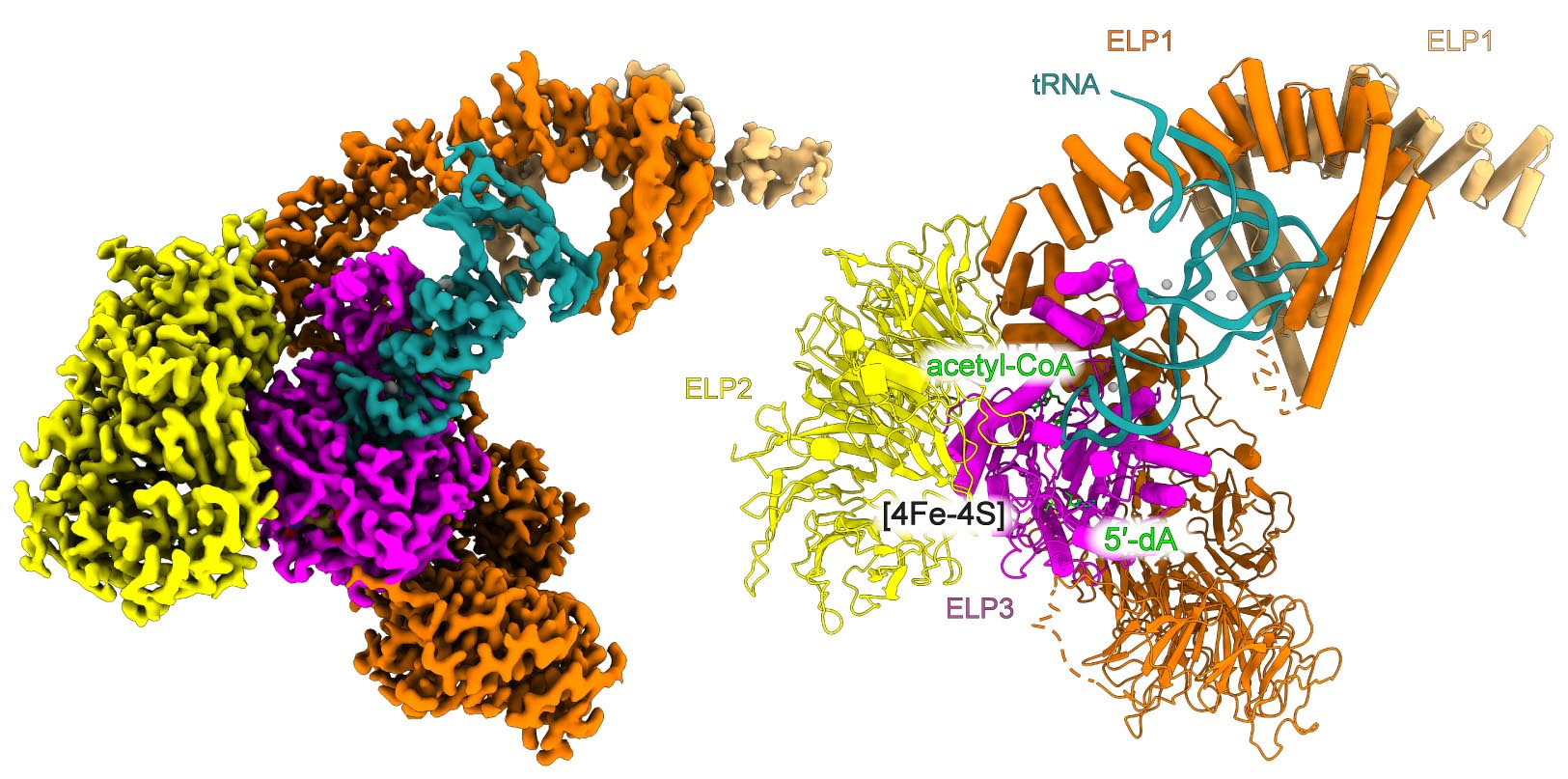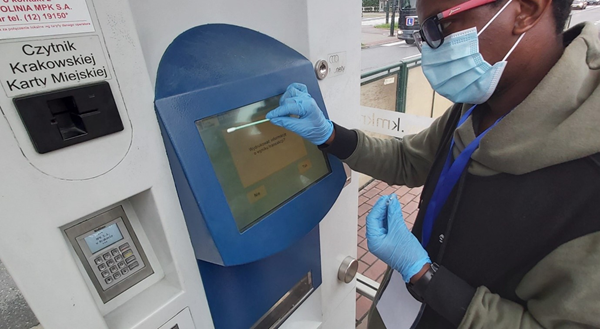
Can ticket machines and benches at tram stops be as biologically diverse as rainforests? To answer this question, scientists from around the world will explore the realm of microorganisms by studying public transport surfaces during the annual Global City Sampling Day (gCSD). Krakow is participating in this global initiative for the fourth consecutive year.
Samples collected from tram stops and trams
gCSD is an annual project where scientists, researchers, students, and trained citizens worldwide head into urban spaces on the same day to collect environmental samples. gCSD will take place on June 21st in over 60 cities across six continents. Krakow joined this initiative in 2020, with volunteers collecting swabs from tram stops and trams on routes 52, 50, and 14. Additional samples are gathered using an air sampler in tunnels near the Main Train Station. This year, the effort will be repeated, led by Dr. Paweł Łabaj from Jagiellonian University, and his team from the Małopolska Centre of Biotechnology, presenting Krakow's "microbiological fingerprint." These findings will deepen our understanding of how microorganisms influence urban life. The collected samples will be sent to the MetaSUB database in New York, where Prof. Christopher Mason's team will sequence the DNA from each sample.
gCSD Worldwide
gCSD is an initiative of the MetaSUB International Consortium. Dr. Paweł Łabaj, National Coordinator of MetaSUB, as well as co-founder of MetaSUB Europe, is the main organizer of gCSD in Krakow. Krakow is the first city in Poland to participate in this initiative, joining dozens of others such as New York, Berlin, Hong Kong, Tokyo, and Buenos Aires. Since 2015, teams of researchers and volunteers worldwide have collected thousands of samples in over 60 cities. You can explore the full history of MetaSUB here.
Urban Environmental Maps
Over the past few years, research by the MetaSUB consortium has highlighted, among other things, the species specificity of certain urban areas, including the discovery of new communities and environmental components. Research findings indicate a microbiological scale of environmental events and have applications in forensics and identifying the presence of drug-resistant strains/pathogens. In May 2021, the consortium published the results of the first years of gCSD in the journal Cell. They identified 4,246 known species of microorganisms across all collected samples. Bacteria accounted for two-thirds of these findings, with the remainder being a mix of fungi, viruses, and other microbes. Additionally, they discovered 10,928 previously undocumented viruses and 748 new types of bacteria. Experts note that most of these organisms are likely harmless to humans, and some may even be beneficial. The new viruses are likely bacteriophages that infect bacteria. These newly discovered microbes have the potential to support the development of new therapies, drugs, or assist in the remediation of polluted areas.
Cracow in gCSD 2024
The project would not have been possible without the support of the Department for Entrepreneurship and Innovation of the City of Cracow, the Public Transport Authority, the Municipal Transport Company and the Municipal Police.
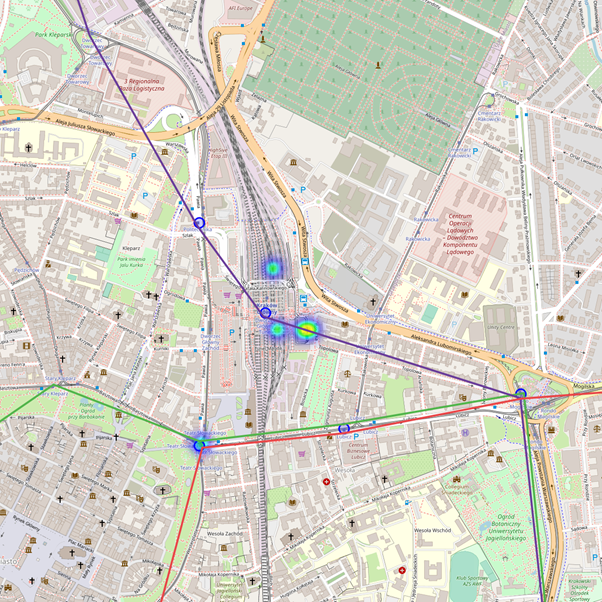
Sample Collection Location Map - locations of air sampling in tunnels near the Main Train Station(heat map).
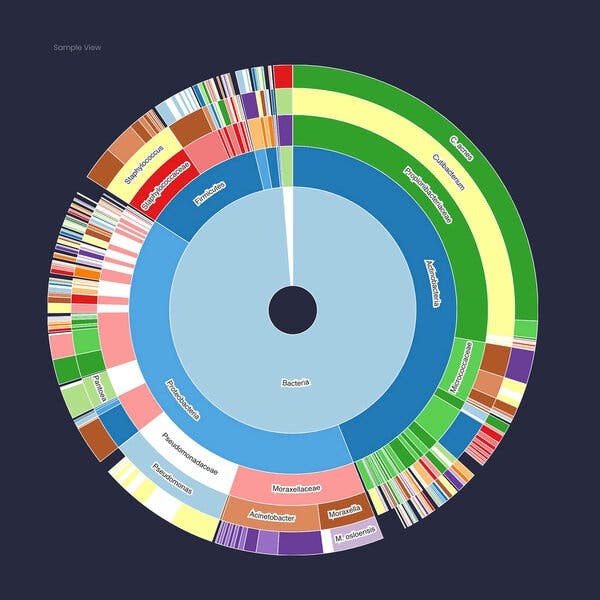
"Radial" map showing the relative abundance of each species in a sample. Source MetaSUB
